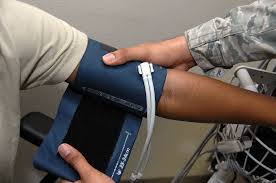Suffering From Prostate Enlargement?
Postural Hypotension Could Cause Misery
Prostate is an important gland that forms a part of the male reproduction system. This walnut-shaped gland surrounds urethra, the tube through which the urine flows out. One of its major roles is to add fluid to semen, and to protect the sperms from damaging. This particular gland constantly grows in size as men age, and as the cells continue to multiply all through their lifespan.
When Prostate becomes Problematic
Benign Prostate Hyperplasia (BPH) is a condition that is marked by excessive inflammation of the prostate gland. It is one of the most common problems experienced by most of the men. In fact, by the age of 60, more than fifty percent men almost complain of experiencing this condition. BPH, however, is non-cancerous and being extremely common malady, and not a major cause of concern. Yet, this painful and extremely discomforting condition can cause a lot of other problems. Due to excessive swelling which men generally experience during BPH, this ends up squeezing the urethra and thus restricting the urine flow. This can lead to some other issues like –
- frequent urination,
- Urinary leakage,
- Dribbling,
- Weak urinary stream,
- Urinary Tract Infections (UTIs),
- Bladder stones
- Reduced kidney function.
About Postural Hypotension
Postural Hypotension refers to that significant drop in blood pressure which is experienced when a person suddenly shifts his posture to a more vertical position. Standing up on their feet after having being sitting or lying for a while sometimes results in hypotension for some people. Also known as orthostatic hypotension, it is a chronic and much debilitating illness. It usually happens as a result of an inadequate physiologic response to postural changes in blood pressure.
Symptoms of Postural Hypotension
The person experiencing an episode of postural hypotension starts to feel dizzy and disoriented as he/she gets up, and might even faint in some cases. Other common symptoms include nausea, light-headedness, confusion, blurred vision, chest pain, weakness and excessive fatigue, etc. This problem is usually mild, and the symptoms tend to subside after staying in a relaxing position for a few minutes. But while some people experience this problem only once in a while, chronic hypotension could be a cause of concern. In fact, chronic cases are rather difficult to treat and might, in fact, indicate towards an underlying, more serious health condition.
More Causes
Ageing, dehydration, pregnancy, immobility, anaemia, extremely hot weather, etc. are some of the common causes leading up to a potential drop in blood pressure while changing the posture. However, those suffering from a heart condition, endocrine system issues, Parkinson’s disease, depression, etc. also complain of frequently experiencing this physical condition. Interestingly, men with an enlarged prostate are not directly at a risk of experience this condition. However, of late, this has become a frequent observation. Let us read on.
BPH and Postural Hypotension – The Relationship
Benign Prostate Hyperplasia is a rather common condition which is often faced by ageing men. However, there is a growing connection between BPH and frequent episodes of postural hypotension. Among some others, one of the prime reasons could, perhaps, be the inappropriate choice of drug treatment by people seeking relief from BPH symptoms.
When it comes to the management of prostate enlargement, it is important to carefully choose the right drug. In fact, an optimal selection of the drug treatment and its dosage, have been observed to play a major role in reducing harmful side effects. As with any drug, the higher the dose or the potency, the more likely are the side effects. Some common side effects experienced by people experiencing BPH include dizziness, nasal congestion, fatigue and ejaculatory disorder, etc. Postural hypotension remains one of the most frequent adverse affects of BPH.
About the Author
Dr Sonica Krishan is Author and Speaker in Healthy and Joyous Living through Ayurveda, Meditation, Yoga and other Contemplative practices. She is a leading Ayurveda Professional in India. She is also Health Writer, Columnist, Editor, Ayurveda Consultant at Herboveda and Holistic Healing Coach. Dr Sonica is open for National as well as International Collaborations with interested people / institutions in fields of Ayurveda, Meditation and Yoga.
Related Posts
Manage Nocturia With Natural Remedies
As Age Progresses: Health Issues Apparent in Women And Men

